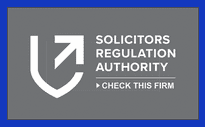
Appeals, Statutory Declarations and Applications to Reopen
If you have already been found guilty it does not necessarily mean that the case is over. There are ways of appealing or having your case re-heard.
1. Statutory Declaration
- If you have been found guilty at a Magistrates’ Court but had no knowledge of the proceedings; and
- Are within 21 days of finding out about the conviction;
then you can swear a statutory declaration that you did not know about it. This will set aside the conviction (and any points/fine) but will only start the proceedings again from the beginning, meaning that you will still be required to enter a plea.
A stat dec can be made at any Court/Solicitors office – but whether to make it at the convicting Court, your local Court or a Solicitors should be decided on a case by case basis depending on preference, availability and location. If the stat dec is sworn at a place other than the convicting Court, the signed declaration will be sent to the convicting Court to start the proceedings again.
Once made, the Court will require you to enter a plea, and the proceedings will be re-set.
2. Application to reopen under s.142
Another way to get a Magistrates’ Court case reheard is by making an application to reopen the proceedings under s.142 Magistrates’ Court Act 1980.
An application to reopen has a far wider remit than a statutory declaration. It is not limited to cases where the defendant had no knowledge of the proceedings and there is no time limit. But the issue here is that it is completely at the Court’s discretion and they may refuse.
If agreed, a reopening has the same effect as a stat dec – the conviction/points/fine are removed and the proceedings start again, with the Court requiring you to enter a plea.
3. Appeal
Any defendant convicted at the Magistrates’ Court has an automatic right to Appeal to the Crown Court.
- Must be lodged within 21 days of conviction (the day of the hearing is day 1).
- A defendant can appeal against the conviction or against the sentence only.
- There is a particular form to complete which must be lodged at the Court and prosecuting authority.
- Disqualifications are NOT automatically suspended, pending an appeal. Suspending a ban is a separate application that the defendant must make and for the Court to consider independently. Fines and penalty points are not suspended, pending an appeal.
On appeal the case would be sent to the Crown Court, where it would be considered by a bench consisting of a Judge and 2 Magistrates (no jury). It is not necessarily an Appeal to discuss the Magistrates’ Court’s decision – the Crown Court can make their own decision so they may very well reduce the sentence but they may also increase it.
If the appeal is outside of 21 days, an application must be made to a Crown Court Judge for leave to appeal out of time.
If successful on appeal, an application can be made for defence costs, so that you can be reimbursed your reasonable legal fees.
Appeals from the Crown Court
If your case has already been to the Crown Court there is no automatic right of appeal. An appeal can be made to either the Court of Appeal or High Court, but only on very particular points and in certain circumstances. You should seek legal advice before proceeding with an appeal from the Crown Court.
Which Option to Choose?
Which route to take can be a tricky and complicated decision so call us for FREE legal advice ( click the button below to get in touch ). We will be more than happy to talk you through these options and help you pick the right option for you.


